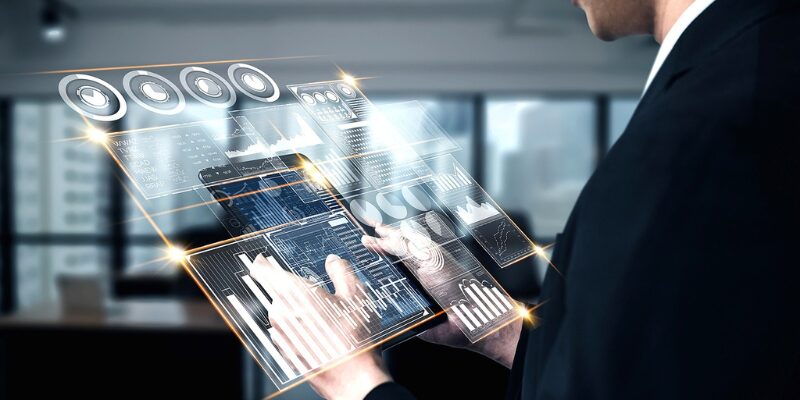Artificial Intelligence (AI) has become an incredibly powerful tool, reshaping everything from social media algorithms to self-driving cars and medical diagnostics. In Silicon Valley, the heart of tech innovation, AI is more than just a technology it’s a driving force for shaping the future. But with this power comes a big question: how do we ensure AI is used ethically? For many, the ethics of AI isn’t just about what it can do but about whether it should do certain things. This article explores the ethical dimensions of AI from a Silicon Valley perspective, looking at the challenges and potential solutions for using AI responsibly.
Understanding AI and Ethics
Ethics are the moral principles that guide our actions, helping us determine right from wrong. When it comes to AI, ethics involve considering the impact of AI systems on people and society. Silicon Valley companies like Google, Facebook, and Apple are building AI technologies that can affect millions of lives, so it’s essential to understand how these technologies align with ethical principles.
In simple terms, ethical AI involves creating systems that are fair, unbiased, and safe for everyone. The idea is to make sure AI supports society positively and doesn’t harm anyone in the process. But this isn’t always easy AI is based on data, and data can be messy, biased, or incomplete, which makes ethical concerns a constant topic of discussion.
Why AI Ethics Matter in Silicon Valley
Silicon Valley is home to many of the world’s top tech companies, which means it’s also the birthplace of many AI innovations. Companies here are constantly pushing boundaries and exploring new possibilities, which makes it a hub of exciting but sometimes controversial advancements. When technology changes fast, it can be hard to keep up with the ethical considerations.
For instance, algorithms that recommend social media posts or suggest search results can unintentionally reinforce harmful stereotypes or spread misinformation. Imagine a young person seeing misleading or biased content repeatedly, possibly influencing their beliefs or opinions. This impact is one of many ethical challenges Silicon Valley companies face, and it’s why they’re starting to take AI ethics more seriously. In recent years, several tech companies have even established “AI ethics boards” or hired “ethics officers” to help guide responsible AI development.
Key Ethical Challenges in AI Development
Silicon Valley’s biggest AI challenges boil down to issues like privacy, bias, accountability, and transparency. Here’s a breakdown of each:
Privacy: AI relies on vast amounts of data, including personal information, to function effectively. For example, AI can predict what movies you might like by analyzing your past viewing history. But what if AI systems use personal information without consent? Privacy concerns have sparked debates on how data should be collected, stored, and used. Silicon Valley companies are now finding ways to protect privacy, such as anonymizing data (removing identifiers) before processing it.
Bias: Since AI systems learn from data, they can pick up biases present in that data. For instance, a hiring AI trained on biased data might favor certain genders or backgrounds over others. This is a big problem because bias can lead to unfair treatment. Silicon Valley tech companies are actively researching ways to reduce bias, such as testing AI systems on diverse data sets to make sure they work fairly for everyone.
Accountability: If an AI system makes a mistake, who is responsible? For example, if a self-driving car crashes, is the company, the car manufacturer, or the programmer responsible? Accountability in AI is tricky because it can be hard to trace decisions back to specific people. Silicon Valley is working on ways to ensure someone is accountable when things go wrong, which is crucial for building trust.
Transparency: Transparency means making AI processes easy to understand. Imagine trying to figure out how a complicated math problem works without seeing the steps involved. The same goes for AI if companies keep their AI “black boxes” closed, it’s hard for users to know if decisions are fair. Silicon Valley leaders are exploring ways to open up AI processes, making them easier to understand and explain.
Steps Silicon Valley is Taking for Ethical AI
Addressing AI ethics isn’t just about talking; it requires real action. Many Silicon Valley companies are making meaningful changes to ensure their AI technologies align with ethical principles. Here are some of the key steps being taken:
Creating Ethical Guidelines: Companies like Google, Microsoft, and Facebook have published AI ethical guidelines that outline how their technologies should respect privacy, avoid bias, and maintain transparency. These guidelines set a standard for how AI should be used responsibly.
Building Diverse Teams: Diverse teams can help reduce bias in AI development. By hiring people from different backgrounds, companies can gain a broader perspective and create AI systems that are fairer for everyone. Many Silicon Valley companies are actively working to make their teams more diverse to avoid “groupthink” and encourage a variety of viewpoints.
Developing Fairness Tools: Fairness tools are software solutions that help identify and reduce bias in AI systems. For example, IBM has developed tools that scan AI models for signs of bias, alerting developers when adjustments are needed. These tools are becoming more popular in Silicon Valley, making it easier to create fair AI systems.
Collaborating with Experts: Silicon Valley companies are working closely with ethicists, sociologists, and human rights experts to better understand the ethical implications of their AI technologies. By getting input from people outside the tech world, these companies can better address the real-world impacts of their innovations.
The Role of Regulation in Ethical AI
Government regulation is another critical factor in AI ethics. In the U.S., there’s currently no single set of rules governing AI use, but many argue that we need regulations to protect society from harmful AI practices. For instance, the European Union has introduced the AI Act, which sets rules to prevent risky AI applications, like facial recognition in public spaces, from being misused.
In Silicon Valley, some tech companies are open to regulation, understanding that responsible AI is necessary for building public trust. However, others worry that too many rules could slow innovation. The balance between innovation and regulation is a delicate one, and Silicon Valley is watching closely as the government develops policies for AI.
A Look to the Future: Ethical AI as a Core Value
The ethical challenges of AI are likely to grow as technology becomes even more advanced. Silicon Valley companies know that they need to embrace ethical AI as a core value, not just a “nice-to-have.” Building trustworthy AI means ensuring that it benefits society, respects individual rights, and minimizes harm.
Youths interested in tech and AI are also essential in shaping this future. Many Silicon Valley companies offer internships, workshops, and online courses to educate the next generation on responsible AI practices. Learning about AI ethics early on can help you, as future developers, engineers, or tech influencers, contribute positively to society.
Conclusion
Ethics in AI isn’t just about controlling what AI can or cannot do; it’s about guiding AI in a way that benefits society as a whole. Silicon Valley, as the birthplace of many AI innovations, holds a significant responsibility to make ethical AI a priority. While challenges like privacy, bias, accountability, and transparency remain, the steps being taken by tech companies to address them are a promising start.
As AI continues to advance, ethical considerations will become more important than ever. Youths interested in technology can play a big role in this journey by advocating for and learning about ethical practices in AI. With a collective effort from tech companies, policymakers, and the next generation, we can work toward a future where AI helps everyone ethically and responsibly.



































